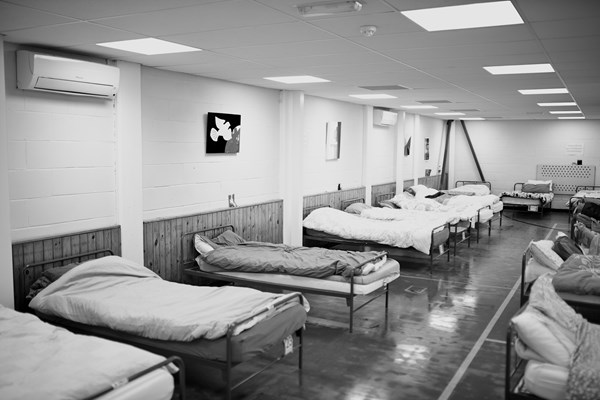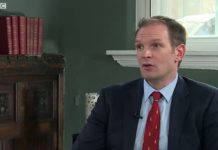Greatee Manchester’s decision to expand its emergency accommodation provision, A Bed Every Night (ABEN), has helped prevent more people sleeping on our streets against the backdrop of the cost of living crisis.
As of January 2023, there were 582 people in ABEN on an average night with 172 people new to the system, compared to 526 people in January 2022 and 145 new move-ins.
This represents a 9.6 percent increase in people using the service and a 15.6 percent increase in new people.
A Bed Every Night was set up by the Mayor of Greater Manchester in 2018 and supports people sleeping rough in Greater Manchester or those at risk of sleeping rough.
This includes people who are not eligible for statutory accommodation and those who have No Recourse to Public Funds. The number of beds being provided has grown every year as more investment by Greater Manchester Combined Authority, councils and other partners has been put into ABEN, including an additional 86 bed spaces to boost winter provision in the city-region.
Because of the decisions made by Greater Manchester, it has recorded a significantly lower increase in rough sleeping than other parts of England.
The annual official government rough sleeper count published yesterday shows a national average increase of 26 percent, with regional trends showing that rough sleeping has increased by 34 percent in London, 29 percent in the West Midlands and 24 percent in the North West. Greater Manchester’s increase is only 9 percent – significantly below rises seen elsewhere.
By working together and being proactive in increasing its ABEN provision, Greater Manchester is believed to have avoided the same level of increase as seen in other parts of England. In fact, from January 2022 to January 2023, every month except one had a lower number of people sleeping rough compared to the November count in Greater Manchester. This includes 71 people sleeping rough in January 2022 and 81 in January 2023, indicating that strong efforts to keep people off the streets by intervening early before they even make it on to the streets have helped against the national tide.
Although monthly counts of people rough sleeping take place across the 10 boroughs, the official rough sleep count figure comes from the annual rough sleeping ‘snapshot’, which uses an annual street count to estimate the number of people sleeping out on a single night each autumn.
In order to collect more meaningful information, GMCA has been working with the Department for Levelling Up, Housing and Communities (DLUHC) and the Centre for Homelessness Impact as an Early Adopter of a new data framework which will give fresh insights into the nature of rough sleeping nationally and help local leaders drive progress towards ending street homelessness. The framework will measure eight key indicators designed to tell us whether rough sleeping is being prevented and, where it does happen, whether it is a rare, brief and non-recurrent experience. Whilst the current count data tells us if rough sleeping is going up or down, the new framework will allow us to look at why it is increasing or decreasing, in order to tailor our responses.
GMCA is also refreshing its approach to outreach and piloting a new system from February onwards. The outreach team will be accompanied by non-uniformed Police Officers from Greater Manchester Police and a member of staff from the local authority during the monthly rough sleeping count, and supported by Greater Manchester mental health services and Urban Village.
The new system will also include regular multi-agency meetings, taking a ‘names not numbers’ approach to understanding how services need to support the person – for example through health care referrals or mental health referrals – so that they can access accommodation. This system-wide approach will improve communication between the services and will result in a more efficient and effective system to get people the help they need.
Mayor of Greater Manchester Andy Burnham said:
“I would like to thank everyone in Greater Manchester who has worked so hard to support people through the cost of living crisis and prevent a big rise in rough sleeping. Our decision to expand A Bed Every Night shows it was the right one to keep as many people off the streets as possible and provide the multi-agency support they need.
“While the official November rough sleeping count is a little higher than where we want to be, we are confident that it doesn’t reflect a rising trend when you look at our monthly figures over a longer period.
“There has been real progress made in our city-region over the years through the collective efforts of partners in our councils, the VCSE and faith sectors, housing providers, police, probation services and health, and I’m proud of what we’ve been able to achieve by working together. In spite of the challenges that we face, our commitment to end rough sleeping is stronger than ever, and we will continue making every effort to achieve this goal.”
Andy, who has lived experience of rough sleeping in Greater Manchester, said:
“Everyone is struggling with the cost of living. I am seeing more and more young people kicked out of their homes by their parents with nowhere to go, adults being evicted because they can’t pay their mortgage, or their rent.
“A lot of people are finding themselves experiencing long-term street homelessness as they can find it difficult to adapt back into permanent accommodation, like I did. Sometimes they are still in a homelessness mindset and need a lot of support to transition from rough sleeping into permanent accommodation. Luckily, I got a lot of support which helped me adapt. I think there has been improvements since I was homeless – it is easier for people to find the support they need, but there is still room for improvement.”







